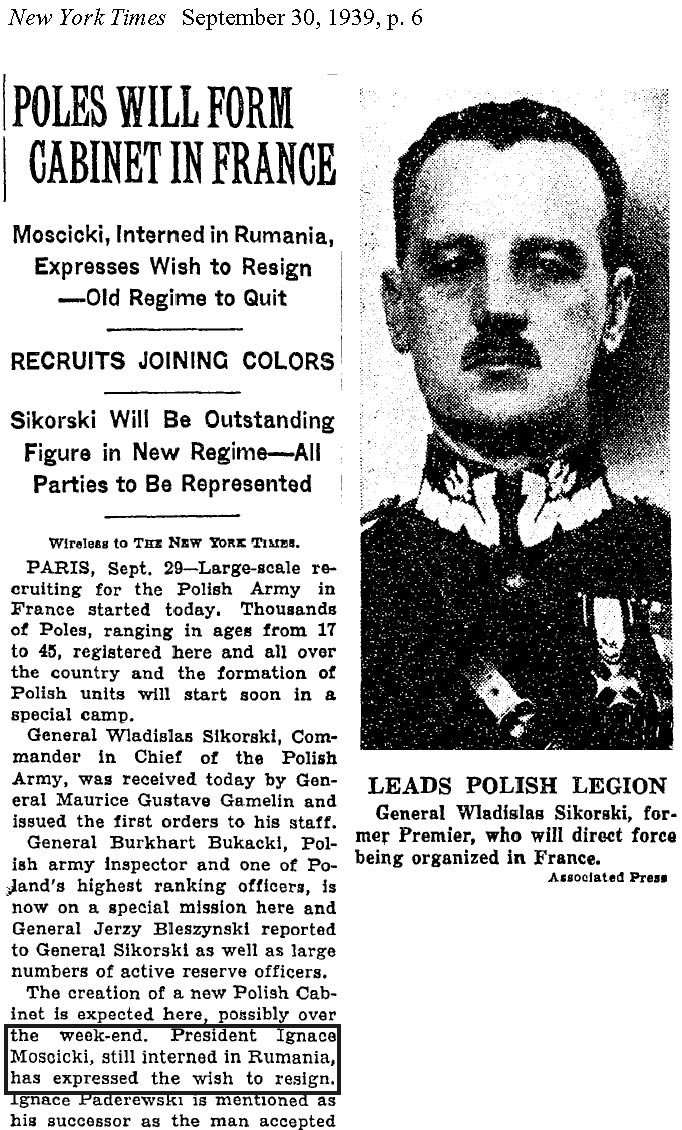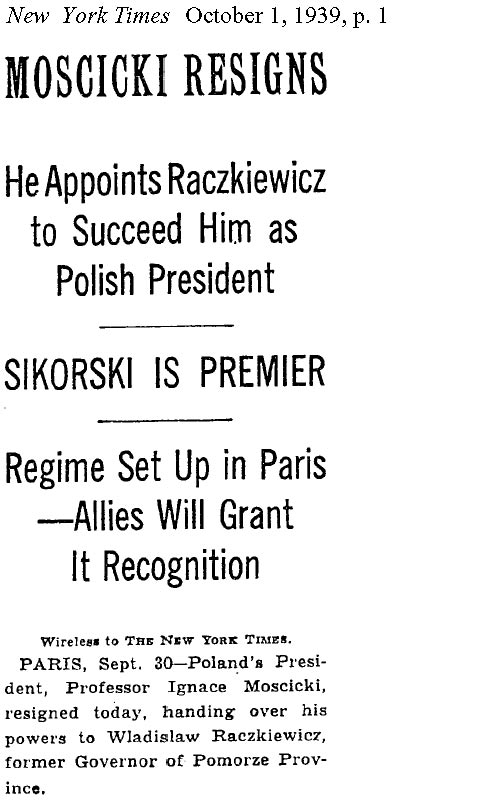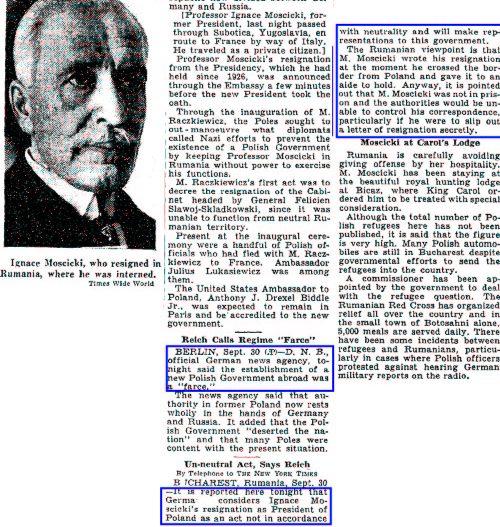
The importance of the "Moscicki resignation" question is that it reveals that after Moscicki and the Polish government had crossed into Rumania on September 17, 1939, Poland had no government at all. We can tell this in two ways: 1. Moscicki knew there was no other President of Poland (he had not resigned). Yet he could not be President because he could not carry out any official functions while interned in Rumania. Therefore, Poland had no government. 2. Rumania was unhappy with this situation, since Therefore Rumanian authorities made up a false story that Moscicki had already resigned on September 15, while he was still in Poland and, therefore, still President of Poland. The problem was that Moscicki was still "expressing the wish to resign" on September 29 -- something he would not have done, of course, had he really resigned on September 15! Moscicki's and the Rumanian government's acts demonstrate that they both agreed about one thing: Since September 17, 1939, Poland had had no government. And that meant that Poland was no longer a "state" under international law (see state_international_law.html |
1. President Ignaz Moscicki of Poland "expressed the wish to resign” on September 29, 1939.


Moscicki needed to
say this in order to appear to give a legal basis – a fig-leaf, at least – for
the Polish Government-in-Exile being formed in
3. The Rumanian government then claimed that Moscicki had really already resigned two weeks earlier, on September 15! (also New York Times October 1, 1939)
The Rumanian government knew that Moscicki could not legally resign when interned in Rumania. If Rumania permitted the Polish government to function as a government -- i.e. refused to intern them -- it would be guilty of an act hostile to Germany, since Germany was at war with Poland and Rumania was neutral.

In reality Moscicki could not resign. Resignation is an official act. Only a government
official can resign. Moscicki was interned in